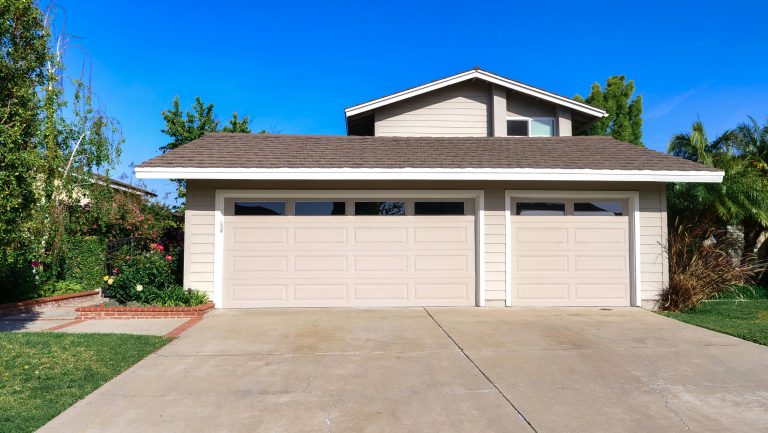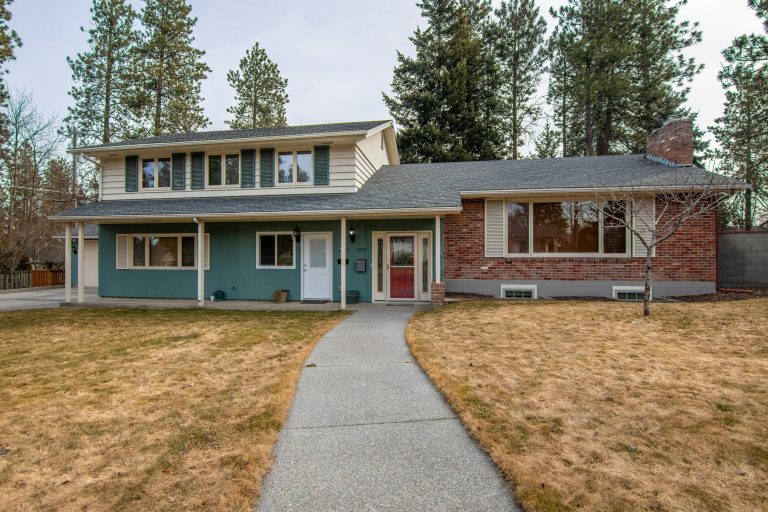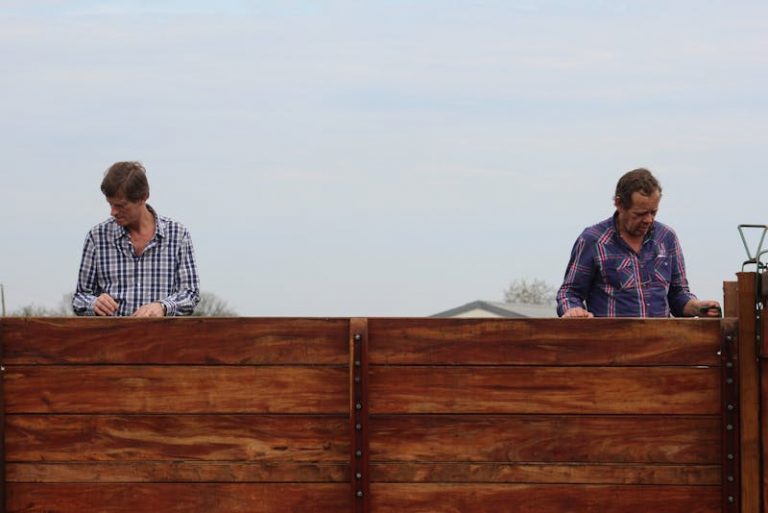

When it comes to choosing the most cost-effective driveway solution for your home, there are various factors to consider. From the types of driveway materials to installation costs and maintenance requirements, each decision can impact your budget in the long run. In this article, we will explore the different options available and help you make an informed choice for the most cost-effective driveway.
Types of Driveway Materials
One of the first decisions you’ll need to make when considering the most cost-effective driveway is the type of material to use. Concrete and gravel are two popular choices that offer different benefits and drawbacks. Concrete driveways are known for their durability and versatility, while gravel driveways are cost-effective and easy to install.
Concrete driveways are a popular choice for homeowners looking for a long-lasting and durable option. They can withstand heavy vehicles and harsh weather conditions, making them ideal for high-traffic areas. On the other hand, gravel driveways are more budget-friendly and can add a rustic charm to your home’s exterior.

Durability of Driveway Materials
When it comes to choosing the most cost-effective driveway, the material you choose can make a significant difference. Concrete driveways typically have a lifespan of 20-30 years with proper maintenance, making them a reliable option for many homeowners. On the other hand, gravel driveways may require more frequent upkeep to prevent erosion and potholes.
It’s essential to consult with a paving company or asphalt contractor to assess your driveway’s condition and choose the right material for your needs. A local asphalt contractor can provide expert advice on maintenance practices and help you prolong the life of your driveway. By choosing the right material and contractor, you can ensure a cost-effective and durable solution for your home.
Costs of Driveway Installation
When it comes to installing a new driveway, the upfront costs and long-term expenses can vary depending on the material you choose. Asphalt driveways are a popular choice for many homeowners due to their affordability and durability. However, brick driveways may have a higher upfront cost but require minimal maintenance over time.
The initial cost of installing an asphalt driveway can be lower than other materials, making it an attractive option for budget-conscious homeowners. On the other hand, brick driveways can add a luxurious touch to your home but may require occasional repairs and sealing to maintain their appearance. By comparing the costs of installation and maintenance, you can choose a driveway material that fits your budget and aesthetic preferences.
Before starting the installation process, it’s essential to get quotes from local paving contractors to compare prices and services. A reputable paving company can provide a detailed estimate of the project cost and timeline, helping you plan accordingly. By working with a trusted contractor, you can ensure a smooth and cost-effective driveway installation process.
Climate Considerations for Driveways
Depending on your local climate, different driveway materials may offer unique benefits and challenges. For homeowners in snowy regions, concrete driveways are known for their durability and resistance to freeze-thaw cycles. Gravel driveways can be susceptible to erosion and potholes in wet climates, requiring regular maintenance to prevent damage.
It’s essential to work with a local asphalt contractor or paving service to assess your climate considerations and choose the right material for your driveway. A knowledgeable contractor can recommend suitable options based on your region’s climate and help you make an informed decision. By selecting a material that can withstand your local weather conditions, you can ensure a cost-effective and durable driveway solution for your home.
Aesthetics of Different Driveway Options
In addition to durability and cost, the aesthetics of your driveway can significantly impact your home’s curb appeal. Brick driveways are known for their classic and timeless look, adding a touch of elegance to your property. Stamped concrete driveways offer endless customization options, allowing you to create a unique and personalized design.
Brick driveways can enhance the visual appeal of your home and create a cohesive look with your exterior design. Stamped concrete driveways can mimic the appearance of brick or stone without the high costs, providing a cost-effective alternative for homeowners. By considering the aesthetics of each material, you can choose a driveway option that complements your home’s style and enhances its overall value.

Maintenance Requirements for Driveways
Regardless of the material you choose, regular maintenance is essential to prolong your driveway’s lifespan and prevent costly repairs. Asphalt driveways may require seal coat asphalt services every few years to protect against UV rays and moisture damage. Gravel driveways may need frequent raking and topping off to maintain their appearance and prevent erosion.
Seal coating your asphalt driveway can help extend its lifespan and prevent cracks and potholes caused by temperature changes and moisture. Gravel driveways can benefit from regular raking to redistribute stones and maintain a smooth surface for vehicles. By following a consistent maintenance routine, you can ensure your driveway stays in top condition and avoid expensive repairs down the line.
It’s essential to work with a local paving contractor or asphalt specialist to schedule routine residential asphalt paving services for your driveway. A professional contractor can provide expert advice on the best practices for maintaining your driveway and recommend preventive measures to avoid damage. By investing in regular maintenance, you can protect your driveway investment and enjoy long-lasting performance for years to come.
Resale Value of Homes with Different Driveways
The type of driveway you choose can impact your home’s resale value and appeal to potential buyers. Paver driveways are known for their high-end look and durability, increasing the perceived value of your property. Unpaved driveways, such as gravel or dirt, may detract from your home’s curb appeal and reduce its overall marketability.
By investing in a paver driveway, you can enhance your home’s exterior and create a lasting impression on potential buyers. Paver driveways are durable and low-maintenance, making them a valuable asset for resale. On the other hand, unpaved driveways may require additional landscaping or upgrades to attract buyers and increase your home’s market value.
Energy Efficiency of Driveway Materials
When it comes to energy efficiency, your driveway material can have a significant impact on your home’s heating and cooling costs. Blacktop driveways are known for their heat absorption properties, making them ideal for colder climates. Concrete driveways, on the other hand, have higher reflectivity, reducing heat buildup in warmer regions.
Blacktop driveways can absorb and retain heat from the sun, helping to melt snow and ice during winter months. Concrete driveways reflect sunlight and heat, reducing the need for air conditioning in hot climates. By choosing a material that aligns with your climate and energy needs, you can improve your home’s energy efficiency and reduce utility costs.
Longevity of Driveway Materials
When considering the longevity of your driveway, it’s essential to choose a material that can withstand wear and tear over time. Asphalt driveways may develop cracks and potholes with heavy use, requiring regular maintenance and repair. Gravel driveways may erode and shift under vehicle weight, necessitating ongoing upkeep to prevent damage.
For asphalt driveways, seal coating and crack filling can help extend their lifespan and prevent water infiltration that can cause deterioration. Gravel driveways may need regular regrading and topping off to maintain a level surface and prevent washouts. By investing in routine maintenance and repairs, you can prolong the life of your driveway and avoid costly renovations.
It’s essential to work with a local asphalt contractor or licensed paving companies to schedule regular inspections and maintenance for your driveway. A professional contractor can assess the condition of your driveway and recommend preventive measures to protect against damage. By choosing a material with longevity in mind, you can enjoy a durable and cost-effective driveway for years to come.

Installation Process for Driveways
Before installing a new driveway, it’s essential to understand the timeline and process involved to plan accordingly. Concrete driveway installation typically takes 3-7 days, depending on the site preparation and curing time required. DIY gravel driveway installation can be completed over a weekend with the right equipment and materials.
Concrete driveway installation begins with site excavation and preparation, followed by pouring and finishing the concrete. Gravel driveway installation involves clearing the area, spreading a base layer, and topping off with gravel. By following proper installation techniques, you can ensure a smooth and durable surface for your new driveway.
Environmental Impact of Driveway Choices
When it comes to choosing a driveway material, it’s essential to consider the environmental impact of your decision. Concrete driveways have a higher ecological footprint due to the mining and production of cement, which emits greenhouse gases. Gravel driveways are a more sustainable option, as they require fewer resources and can be recycled or reused.
Concrete production contributes to carbon emissions and resource depletion, making it a less environmentally friendly choice for driveways. Gravel driveways are made from natural stone and gravel, which can be sourced locally and have minimal environmental impact. By choosing a eco-friendly material, you can reduce your carbon footprint and contribute to a more sustainable future.
Safety Features of Different Driveway Materials
Safety is a crucial consideration when choosing the most cost-effective driveway material, as it can impact your family’s well-being and prevent accidents on your property. Brick driveways offer excellent slip resistance, providing traction for vehicles and pedestrians in all weather conditions. Gravel driveways can be prone to erosion and shifting, requiring traction control measures to maintain stability.
Brick driveways feature a textured surface that enhances grip and traction, reducing the risk of slips and falls. Gravel driveways may need stabilizing measures, such as grid systems or binding agents, to prevent stones from shifting underfoot. By prioritizing safety features in your driveway design, you can create a secure and stable surface for everyday use.
Local Regulations on Driveway Installation
Before installing a new driveway, it’s essential to familiarize yourself with local zoning laws and permit requirements to avoid fines or delays. Paved driveways may be subject to specific regulations on materials, dimensions, and setbacks from property lines. Gravel driveways may need permits for excavation or drainage modifications, depending on your location.
It’s essential to work with a local paving contractor or zoning expert to navigate the regulations and requirements for the most cost-effective driveway. A knowledgeable contractor can help you obtain permits, submit plans, and comply with zoning laws to ensure a smooth installation process. By following local regulations, you can avoid penalties and disputes and enjoy a cost-effective and compliant driveway for your home.
Drainage Solutions for Driveways
Proper drainage is essential for maintaining the integrity and performance of your driveway, as water buildup can lead to erosion and damage over time. Concrete driveways require efficient runoff management to prevent pooling and ensure water flows away from the property. Gravel driveways offer natural water permeability, allowing rain to seep through the surface and reduce runoff.
It’s essential to consult with a local paving contractor or drainage specialist to assess your driveway’s drainage needs and implement the most cost-effective driveway. A professional contractor can recommend grading techniques, drainage systems, and landscaping adjustments to improve water flow and prevent standing water. By investing in proper drainage, you can ensure a cost-effective and sustainable driveway solution for your home.

Recommended Driveway Material for Different Budgets
Choosing the most cost-effective driveway material for your budget requires careful consideration of installation costs, maintenance requirements, and longevity. Gravel driveways are a budget-friendly option for homeowners looking to save on upfront expenses while enjoying a durable and versatile surface. Asphalt driveways offer a middle ground between cost and durability, providing a reliable and affordable solution for many households.
Consulting with a local paving contractor or asphalt specialist can help you evaluate your budget and determine the most cost-effective driveway for your needs. A professional contractor can provide estimates, recommendations, and insights to help you make an informed decision. By investing in a cost-effective driveway material, you can enjoy long-lasting performance and curb appeal for your home.
Choosing the most cost-effective driveway material for your home involves careful consideration of budget, aesthetics, maintenance, and climate considerations. By exploring the various options available and working with a local paving contractor, you can create a durable and attractive driveway that enhances your home’s value and curb appeal. Whether you opt for a budget-friendly gravel driveway or a reliable asphalt surface, the key is to prioritize quality, longevity, and sustainability to ensure a cost-effective solution for your property.







